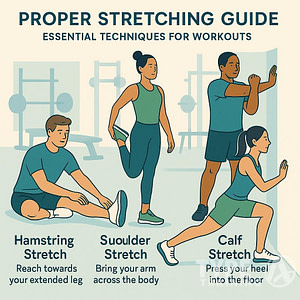Anxiety can significantly impact the quality of your sleep, making it difficult to fall asleep or stay asleep throughout the night. When you’re anxious, your mind can race with thoughts that prevent relaxation.
Implementing effective Anxiety Sleep Strategies can significantly enhance your ability to relax and improve sleep quality.
Sleep problems like insomnia are common in those experiencing stress and anxiety. Understanding the connection between anxiety and sleep issues is crucial for improving your mental health.
These Anxiety Sleep Strategies can help alleviate symptoms of insomnia and promote a sense of calm.
Popular posts:
Sleep disturbances caused by anxiety can create a cycle where lack of rest leads to more anxiety, making it even harder to get the rest you need. Addressing these disturbances is important for both your mental and physical well-being.
Effective Anxiety Sleep Strategies include creating a bedtime routine, practicing relaxation techniques, and seeking professional support when necessary.
Some of these Anxiety Sleep Strategies include mindfulness meditation, which can help reduce racing thoughts at bedtime.
Managing anxiety-related sleep problems often involves simple changes that can lead to a more restful night.
Utilizing various Anxiety Sleep Strategies in your nightly routine can be beneficial for achieving restful sleep.
Establishing a calming environment and sticking to good sleep hygiene practices can make a significant difference. By focusing on both anxiety management and a healthy sleep environment, you can break the pattern of sleepless nights.
Exploring different Anxiety Sleep Strategies can also lead to better sleep hygiene practices.
Key Takeaways
- Anxiety affects sleep quality and can lead to insomnia.
- Lack of sleep due to anxiety can worsen mental health.
- Effective management includes routines and relaxation techniques.
Understanding Anxiety and Sleep
Understanding the relationship between anxiety and sleep is essential for applying effective Anxiety Sleep Strategies.
Anxiety and sleep are closely linked, with anxiety often affecting sleep quality and vice versa.
Implementing Anxiety Sleep Strategies can provide relief from the negative effects of sleep deprivation.
The Connection Between Anxiety and Sleep
Anxiety can significantly affect your sleep patterns. When you’re anxious, your body might experience increased levels of stress hormones, making it hard to relax and fall asleep.
By employing Anxiety Sleep Strategies, you can regain control over your sleep patterns.
Insufficient sleep can lead to sleep disorders, making anxiety symptoms worse. This can create a cycle where anxiety and sleep deprivation continually impact each other.
Nocturnal panic attacks are sudden feelings of fear that occur during sleep, causing you to wake up in panic. These attacks can lead to further sleep anxiety, as you might start fearing bedtime or sleep itself.
To improve sleep quality, it’s crucial to address stress and anxiety through relaxation techniques or therapy.
Incorporating various Anxiety Sleep Strategies can also lead to improved emotional well-being.
Types of Anxiety Disorders
Recognizing your anxiety disorder can help you select the right Anxiety Sleep Strategies for your needs.
Anxiety disorders come in various forms, each with its own set of challenges.
Generalized Anxiety Disorder (GAD) involves excessive worrying about everyday activities.
Applying specific Anxiety Sleep Strategies can mitigate the symptoms of Generalized Anxiety Disorder.
Panic Disorder leads to sudden and intense fear, often resulting in panic attacks.
Post-Traumatic Stress Disorder (PTSD) occurs after experiencing or witnessing a traumatic event. This disorder can lead to nightmares and disturbances in sleep.
Understanding how Anxiety Sleep Strategies work can help you find the right approach for sleep-related issues.
Each of these conditions can have a significant psychological impact, often increasing sleep-related anxiety.
Common Symptoms of Anxiety
Recognizing the symptoms of anxiety can aid you in seeking the appropriate help.
Recognizing how anxiety affects sleep is crucial for implementing effective Anxiety Sleep Strategies.
Common symptoms include prolonged worry, restlessness, irritability, and difficulty concentrating.
Physical symptoms such as increased heart rate, sweating, and shortness of breath can also occur.
These symptoms might lead to difficulties settling down for sleep, causing you to experience sleep anxiety.
Sleep anxiety manifests as stress or fear about falling or staying asleep, further exacerbating the cycle of anxiety and sleep disturbance.
By integrating Anxiety Sleep Strategies into your daily routine, you can break the cycle of anxiety and sleep disturbance.
Impact of Sleep Disturbances
When you experience sleep disturbances, both your body and mind can suffer.
Effects on Mental Health
Understanding the impact of sleep disturbances allows you to focus on effective Anxiety Sleep Strategies.
Sleep disturbances like insomnia significantly impact mental health.
Lack of sleep can heighten feelings of anxiety and stress, creating a cycle where anxiety at night makes falling asleep difficult, and poor sleep increases anxiety levels the next day.
Disturbed sleep can contribute to depression. If you already have mental health disorders, these sleep issues can make the symptoms worse.
Healthy sleep is crucial for staying mentally balanced and maintaining emotional resilience.
Physical Health Consequences
Sleep disturbances take a toll on physical health.
Utilizing Anxiety Sleep Strategies can help you counteract the physical health consequences of poor sleep.
Poor sleep quality can affect your immune system, making you more vulnerable to infections.
Chronic sleep deprivation is linked to a higher risk of diabetes and obesity due to its impact on metabolism and hormone regulation.
Disrupted REM sleep affects energy levels and cognitive functions, impacting your ability to focus and perform daily tasks.
Long-Term Implications
The long-term consequences of ongoing sleep disturbances are concerning.
Long-term implementation of Anxiety Sleep Strategies can lead to significant health benefits.
Over time, persistent sleep problems can lead to chronic anxiety and contribute to cardiovascular diseases and metabolic issues.
The impact on your mental state can worsen, making it harder to cope with stress.
Seeing a healthcare provider is key if you experience chronic sleep issues. They can offer support and treatments to improve your sleep habits and address any underlying causes.
Consulting with a professional can also provide insight into effective Anxiety Sleep Strategies tailored for you.
Treatment and Management Strategies
Addressing anxiety-related sleep issues requires a combination of therapies, medication, and lifestyle changes. Understanding these strategies will help you manage symptoms effectively and improve both your sleep and mental well-being.
Combining various Anxiety Sleep Strategies with lifestyle changes can enhance your overall sleep experience.
Therapeutic Approaches
Therapy plays an essential role in managing anxiety and sleep issues.
Cognitive Behavioral Therapy (CBT) is highly effective. It helps you identify negative thought patterns and develop healthier thinking processes.
If insomnia is a problem, you might consider Cognitive Behavioral Therapy for Insomnia (CBT-I), specifically designed to tackle sleep disorders.
Exposure Therapy is another option if specific fears contribute to your anxiety. You gradually face these fears in a controlled environment, reducing anxiety over time.
Joining support groups can also provide valuable shared experiences and coping strategies.
Engaging in support groups can further empower you to utilize effective Anxiety Sleep Strategies.
Medication and Supplements
In some cases, medication can be an effective part of your treatment plan.
Selective Serotonin Reuptake Inhibitors (SSRIs) and benzodiazepines may be prescribed to help manage anxiety symptoms.
SSRIs generally have a more long-term approach, while benzodiazepines offer quicker relief for severe anxiety.
Melatonin is a supplement that may help regulate your sleep cycle if insomnia is a concern.
It’s vital to consult a healthcare professional before starting any medication or supplement to ensure they are appropriate for your symptoms.
Lifestyle Modifications
These lifestyle modifications, when paired with Anxiety Sleep Strategies, can yield improved sleep quality.
Lifestyle changes can significantly impact anxiety and sleep health.
Incorporating relaxation techniques like meditation and yoga into your daily routine can help reduce stress.
Regular exercise is another excellent way to manage anxiety, as it releases endorphins that improve mood and promote sleep.
Maintaining good sleep hygiene is crucial: set a consistent sleep schedule, create a calming bedtime routine, and keep your sleep environment comfortable.
Incorporating relaxing Anxiety Sleep Strategies such as yoga can be beneficial for stress relief.
Reducing screen time before bed and avoiding caffeine in the evening can also enhance sleep quality.
Creating a Healthy Sleep Environment
Optimal sleep is crucial for well-being. Ensuring good sleep involves proper sleep hygiene and designing a conducive sleeping space.
A well-designed sleep environment combined with Anxiety Sleep Strategies can lead to better rest.
Sleep Hygiene Practices
Establishing consistent sleep habits can improve your rest dramatically.
Maintain a regular sleep schedule by going to bed and waking up at the same time every day. This helps regulate your body’s internal clock.
Avoid using screens and electronic devices at least 30 minutes before bed, as they emit blue light that interferes with sleep.
Limiting your intake of caffeine and nicotine in the evening also plays a key role in promoting restful sleep.
Incorporate relaxation techniques like deep breathing or light yoga in your bedtime routine.
Sleep aids should be used sparingly and only if necessary.
Designing a Sleep-Friendly Bedroom
Creating an ideal sleep setting involves several elements.
Your bedroom should be cool, dark, and quiet.
Limiting harsh light and noise can significantly enhance sleep quality. Investing in blackout curtains or using a white noise machine can be helpful.
Choose comfortable bedding and a supportive mattress that fits your sleeping preferences.
If possible, dedicate your bedroom solely to sleep and relaxation activities to create a strong mental association.
Keeping work or stressful tasks out of the bedroom helps maintain its role as a sanctuary for rest.
Preventing and Coping with Anxiety at Night
Implementing Anxiety Sleep Strategies can significantly reduce nighttime anxiety levels.
Anxiety at night can disrupt your circadian rhythm and increase cortisol levels, making it hard to manage anxiety and get restful sleep. Techniques and behavioral changes can help you cope with stress and hyperarousal.
Avoiding Triggers
Identifying and avoiding triggers can help reduce anxiety at night.
By recognizing triggers, you can apply effective Anxiety Sleep Strategies to mitigate their impact.
Common triggers include caffeine, alcohol, and electronics.
Consuming caffeine or alcohol close to bedtime can heighten anxiety and interfere with your sleep.
Exposure to blue light from screens can disrupt your circadian rhythm, making restful sleep elusive. Instead, try relaxing activities like reading a Anxiety Sleep Strategies or listening to calming music.
Stress-Reduction Techniques
Practicing stress-reduction techniques can help you manage anxiety and enhance relaxation.
Mindfulness exercises like meditation and yoga can decrease stress and promote calm.
Deep breathing exercises, such as the “4-7-8” technique, can lower arousal and help you wind down.
Progressive muscle relaxation is another effective method to release tension in your body.
Engaging in regular physical activity during the day can decrease stress, improve mood, and combat negative emotions, helping you maintain a healthy sleep cycle.
Techniques like these can help prevent sleep debt and reduce the chances of experiencing disturbances like nightmares or nightmare disorder.
When to Seek Professional Help
If anxiety at night becomes overwhelming or persistent, you may need to seek professional help.
Cognitive Behavioral Therapy (CBT) can be effective for addressing sleep-related anxiety and reducing negative thought patterns.
If you struggle with more frequent or intense symptoms like nightmares or separation anxiety, reaching out to a mental health professional can provide tailored strategies for better managing nighttime stress.
Consulting a doctor can also help rule out any medical issues, such as sleep disorders or PTSD, that may contribute to your anxiety.
Translated(English)
N/A
Please select text to grab.












